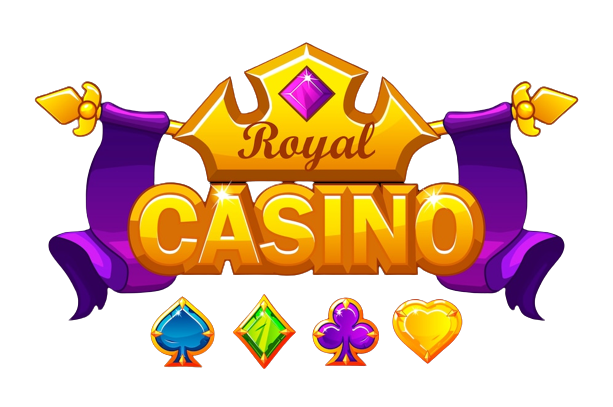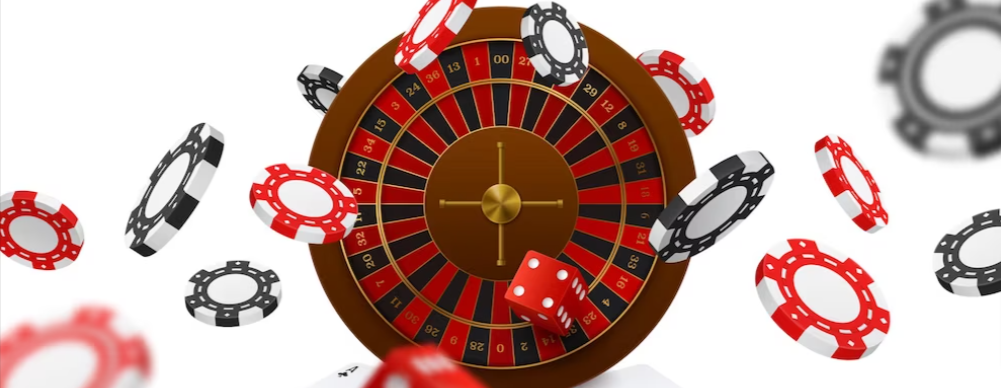Every player at Nomini Casino has likely experienced a big win – the thrilling moment when the reels align perfectly, chips stack up, and adrenaline rushes. Interestingly, gamblers tend to remember these winning moments vividly, recounting them proudly, while simultaneously dismissing or forgetting their losses. This selective memory isn’t just coincidental; it’s rooted deeply in human psychology and cognitive biases.
In this comprehensive exploration, we’ll examine why gamblers typically possess what might be termed a “bad memory,” selectively recalling their winnings and conveniently overlooking their losses. We’ll uncover the psychological mechanisms behind this memory bias, the emotional dynamics it creates, and practical strategies to manage it responsibly while enjoying gambling at platforms.
Understanding Selective Memory in Gambling
Defining Selective Memory
Selective memory refers to the tendency to remember events that confirm our beliefs or desires – in gambling, vividly recalling wins and subconsciously suppressing memories of losses. Players often maintain an optimistic view of their gambling activities because of this cognitive bias.
Why Gamblers Remember Wins Clearly
Wins create strong emotional experiences associated with joy, excitement, and pride. These emotions reinforce vivid memory formation, making winning moments memorable, while losses, often associated with negative emotions or disappointment, are psychologically minimized.
Psychological Foundations of Selective Gambling Memory
Confirmation Bias and Memory
Confirmation bias describes how we selectively remember information confirming our beliefs. Gamblers at Casino recall wins that affirm their skill or luck, while losses contradicting these beliefs become quickly forgotten, dismissed as anomalies.
Cognitive Dissonance and Memory Suppression
Cognitive dissonance occurs when gambling losses conflict with self-perception – believing oneself as a skilled or lucky gambler. To resolve this internal conflict, players subconsciously suppress loss memories, reinforcing a positive self-image and selective memory of wins.
Emotional Dynamics Behind Remembering Wins
Positive Reinforcement of Wins
Wins are emotionally reinforced through feelings of success, validation, and pride. Positive emotional reinforcement ensures that these winning moments remain vividly memorable, overshadowing memories of emotional disappointments from losses.
Emotional Protection Through Forgetting Losses
Forgetting losses serves as emotional protection. Suppressing memories of negative gambling experiences – financial setbacks, emotional disappointment – protects emotional self-esteem and maintains psychological optimism about future gambling outcomes.
Neurological Reasons Behind Selective Memory
Dopamine’s Role in Memory Formation
Neurologically, dopamine release during wins strongly reinforces emotional and memory connections. Dopamine intensifies emotional experiences, ensuring that winning moments at Casino become deeply ingrained, memorable events, overshadowing loss memories.
Memory Suppression and the Brain
Negative emotional experiences, like gambling losses, trigger memory suppression mechanisms. The brain naturally reduces recall of emotionally unpleasant experiences, focusing neurological resources on memories associated with pleasure and satisfaction.
Social and Cultural Influences on Gambling Memory
Social Validation of Wins
Social interactions strongly reinforce gamblers’ memories of wins. Sharing success stories with friends, peers, or online communities validates emotional experiences, reinforcing vivid memories of winning moments and socially encouraging memory suppression of losses.
Cultural Glorification of Winning
Culturally, winning narratives receive attention, admiration, and validation. Cultural attitudes towards gambling emphasize success stories – big jackpots, lucky streaks – further encouraging gamblers to selectively remember and share their own winning experiences.
Recognizing Selective Memory Patterns
Repeatedly Sharing Winning Stories
Frequent retelling of winning stories signals selective memory. Players continually emphasizing past wins while avoiding discussions of losses demonstrate cognitive bias, reflecting emotional reinforcement of positive gambling experiences.
Ignoring or Minimizing Losses
Downplaying or ignoring gambling losses is a clear sign of selective memory. Gamblers often minimize losses, viewing them as irrelevant or unimportant, further reinforcing their positive memory bias and optimistic self-perception.
Risks Associated with Selective Gambling Memory
Increased Emotional Gambling Dependency
Selective memory of wins reinforces emotional gambling dependency. Players believing in consistent winning success risk emotional reliance on gambling, continually seeking emotional reinforcement through repeated gambling experiences.
Financial Risks from Unrealistic Gambling Beliefs
Selective memory significantly distorts gamblers’ perceptions of financial reality. Ignoring or suppressing loss memories creates unrealistic financial optimism, leading to impulsive gambling decisions, prolonged gambling sessions, and increased financial risks.
Strategies for Managing Selective Memory
Developing Accurate Gambling Records
Maintaining detailed gambling records significantly reduces selective memory bias. Documenting wins, losses, session durations, and emotional responses provides accurate insights into gambling behaviors, reducing cognitive biases and improving responsible gambling practices.
Consciously Balancing Memories of Wins and Losses
Actively reflecting on both wins and losses provides balanced emotional and cognitive perspectives. Conscious emotional reflection reduces selective memory bias, promoting realistic gambling beliefs and responsible gambling decisions.
Mindfulness and Cognitive Behavioral Techniques
Practicing Mindful Gambling
Practicing mindful gambling enhances emotional self-awareness and reduces memory bias. Regular mindfulness practices enable players to consciously manage selective memory, emotional reinforcement, and gambling behaviors effectively.
Cognitive Behavioral Approaches
Cognitive behavioral techniques effectively address selective memory bias. Challenging unrealistic gambling beliefs, reframing gambling memories, developing balanced emotional responses significantly reduce emotional gambling dependency and memory distortions.
How Casino Promotes Responsible Gambling Memory
Comprehensive Responsible Gambling Resources
Casino actively promotes responsible gambling, providing extensive resources addressing selective memory bias, emotional management, gambling behaviors, and responsible gambling practices, significantly empowering players’ emotional and cognitive management.
Emotional and Financial Management Tools
Offering robust emotional and financial management tools – deposit limits, loss thresholds, session reminders – Casino actively supports emotional balance, accurate gambling perception, responsible gambling behaviors, and reduced selective memory risks.
Real-Life Experiences: Overcoming Selective Memory Bias
Lucas’s Emotional Reflection Journey
Lucas frequently emphasized wins while suppressing loss memories at Casino. Actively practicing emotional reflection, maintaining accurate gambling records, and mindful gambling significantly reduced selective memory bias, improving emotional stability and responsible gambling practices.
Sophia’s Cognitive Reframing Strategies
Sophia regularly ignored losses, believing in consistent winning success. Cognitive reframing techniques – challenging unrealistic beliefs, conscious memory balancing – significantly reduced selective memory bias, enhancing emotional realism and responsible gambling behaviors.
Recognizing When Professional Help is Needed
Identifying Severe Selective Memory Symptoms
Severe selective memory behaviors – persistent unrealistic gambling beliefs, continuous ignoring of significant losses, emotional dependency on selective gambling memories – indicate a need for professional emotional and gambling support. Prompt recognition ensures emotional wellness and responsible gambling behaviors.
Utilizing Emotional and Gambling Support Networks
Casino actively encourages gamblers experiencing severe selective memory symptoms to promptly utilize emotional counseling, gambling support networks, responsible gambling resources, and professional assistance, ensuring emotional health, gambling recovery, and emotional resilience.
Conclusion: Balancing Memory for Responsible Gambling
Understanding selective memory significantly empowers gamblers to manage emotional reinforcement, cognitive biases, and gambling behaviors responsibly. Recognizing emotional risks associated with selective memory enables proactive emotional reflection, realistic gambling perceptions, and responsible gambling decisions.
Platforms actively support responsible gambling behaviors, emotional wellness, selective memory awareness, and comprehensive emotional education. Players proactively engaging in emotional reflection, mindful gambling practices, accurate gambling records, cognitive reframing strategies, and professional emotional support significantly enhance emotional satisfaction, gambling enjoyment, and life quality.
Ultimately, responsible emotional gambling involves consciously managing selective memory, balancing emotional perceptions, diversifying emotional fulfillment, and maintaining emotional realism. Ensuring emotional balance, stability, realistic gambling perspectives, and responsible gambling behaviors guarantees gambling remains enjoyable, emotionally rewarding, financially responsible, and emotionally enriching, enabling players to confidently embrace their gambling experiences without selective emotional distortions.


